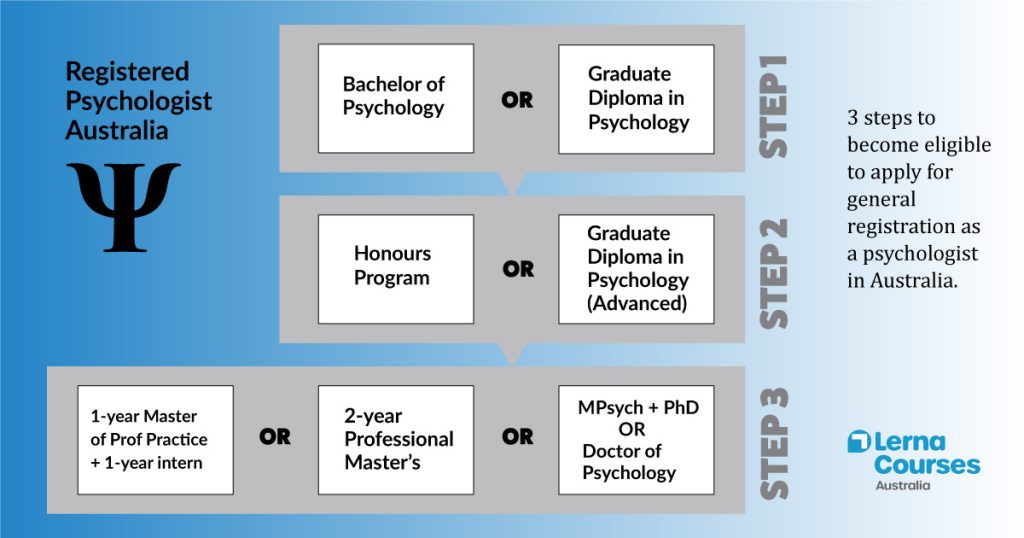Psychologists with general registration are fully qualified to do most things in psychology practice.

Overview
Registered psychologists without a specific practice endorsement are also known as general psychologists. They make up about 60% of Australia's psychologists, according to the Psychology Board of Australia.
To become a psychologist, one needs at least six years of education and training, including a master's or doctorate. This status allows for a wide range of functions in psychology practice, offering numerous career advancement opportunities.
However, general psychologists typically do not treat patients with complex psychological disorders in hospitals and clinical settings. Such roles are reserved for clinical psychologists and clinical neuropsychologists.
Difference Between Registered and Clinical Psychologist
A psychologist listed or presenting themselves as a registered psychologist is different from a clinical psychologist. Specifically, they have not completed the extra education and training required to be endorsed in Clinical Psychology by the Psychology Board of Australia (PsyBA).
Every psychologist has the opportunity to specialise in one or more of nine areas of practice endorsement. By completing specialised master's level studies and a 2-year registrar program working in the same field, psychologists may be endorsed as a:
Clinical psychology is the most popular area of practice because it allows the practitioner to work in clinical settings, such as hospitals, on complex psychological disorders.
A general psychologist can work in any practice area. However, without an endorsement in clinical psychology, they generally do not engage in what clinical psychologists specialise in: assessing, diagnosing, and treating complex mental health disorders.
Related: 12 Types of Psychologists in Australia
How Do You Become a Registered Psychologist?
To become a registered psychologist in Australia, follow these steps.
- Earn a psychology degree. Complete a three-year Bachelor of Psychological Science, or a Graduate Diploma in Psychology if you already have a bachelor's degree in another field.
- Fourth year psychology. Do an additional year to earn a Bachelor of Psychology (Honours) or a Graduate Diploma in Psychology (Advanced), completing a four-year sequence.
- Choose a pathway.
- Higher degree pathway. Enroll in an APAC-accredited postgraduate program, such as a Master of Psychology or a Doctorate, involving coursework, placements, and a thesis.
- 5+1 internship pathway. Complete a one-year Master of Professional Psychology, gain provisional registration, then do a one-year supervised internship and pass the National Psychology Exam.
After completing either pathway, you can apply for general registration with the PsyBA.
Following registration, the higher degree pathway allows for endorsement in an area of practice. You'll need to complete a registrar program, where you work in the field of your specialisation from your 2-year master's.
Related: How to Become a Psychologist in Australia
Can a Registered Psychologist Diagnose?
Yes, all psychologists can diagnose mental health conditions. Clinical psychologists have specialised training for diagnosing and treating complex disorders. However, general psychologists diagnose and treat mental health issues as well, especially conditions within their scope of practice.
For example, a general psychologist may diagnose anxiety or depression during counselling. They might also identify learning disorders in educational settings. In contrast, clinical psychologists often diagnose and treat conditions like bipolar disorder or PTSD.
What is a Registrar Psychologist?
A registrar psychologist in Australia is (a) a registered psychologist and (b) participating in a registrar program on the path to gaining endorsement in a practice area. They are a qualified psychologist who is working as a registrar to gain endorsement in a specialist field.
While many are Clinical Psychology Registrars, due to the popularity of this field, they could also be Clinical Neuropsychology Registrars, Counselling Psychology Registrars, or registrars in any of the nine designated specialties.
Psychology registrars may be new practitioners or experienced professionals looking to gain an area of practice endorsement. They are beyond the provisional psychologist stage.
The process involves up to 3000 hours of supervised work over two years. Registrars develop their skills through practical experience and continuing professional development. The training is aimed at achieving the competencies needed for endorsement.
Upon completing the registrar program, psychologists can apply for endorsement by the PsyBA in their chosen field. Endorsement recognises their specialised skills and allows them to work as experts.


